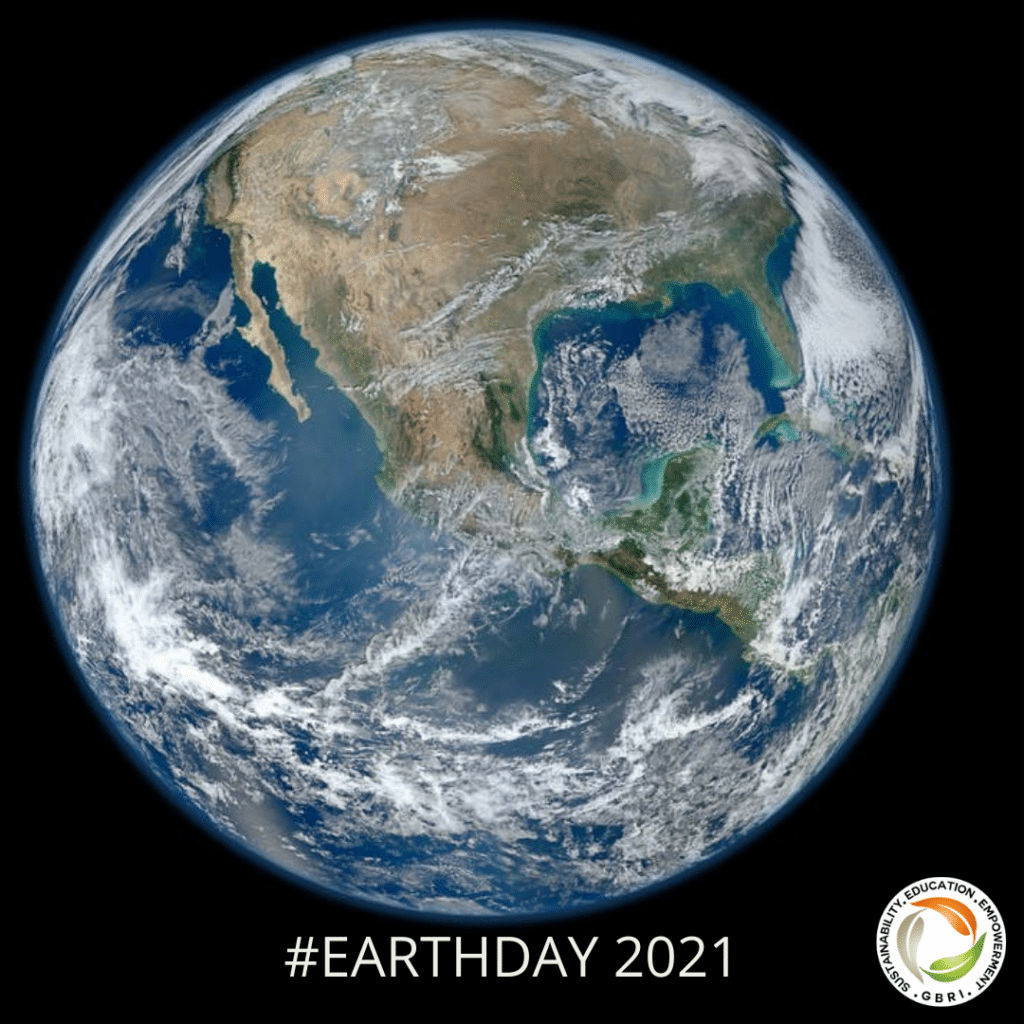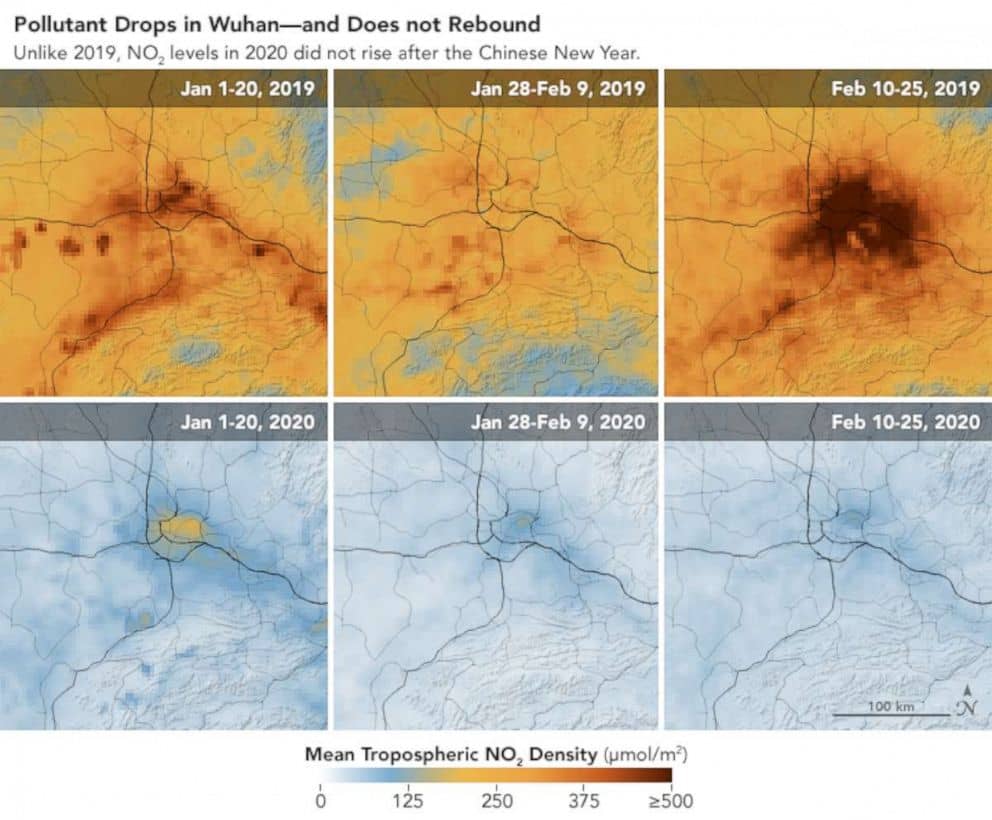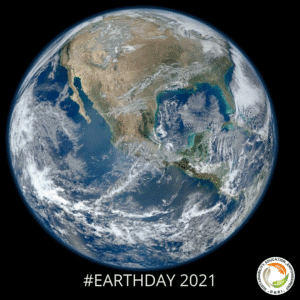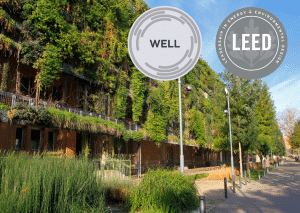Earth Day began back in 1970, but it’s more important than ever in 2021. With the glaciers retreating and ice sheets shrinking – Antarctica loses roughly 148 billion tons of ice each year – the results of climate change are happening right in front of our eyes. (Climate Change Evidence: How Do We Know? 2021)
In the last year, we’ve undergone huge changes as we adjusted to life with a pandemic. While the virus brought about some very dire circumstances, it did have some positives as well. The lessons we’ve learned throughout just might help us bring Earth Day into our everyday actions.
How the pandemic affected the environment
In early 2020, workplaces went remote, schools and stores closed, and public transport shut down. People were encouraged to stay home, off the streets, and out of their cars. As a result, air pollution dropped severely. In eastern China, nitrogen dioxide fell as much as 70%. Better yet, in certain cities, like Wuhan, that number was up to 93%. (Ravilious, 2020)
This incredible drop in air pollution, which was also seen at lower levels across the globe, had one hugely visible result. The smog cleared, and people could see blue skies again. Los Angeles, Paris, and Jakarta could see city skylines in clear focus. For the first time in 30 years, the Himalayan mountains were visible from northern India.
So, what does this teach us? What can we learn from what many perceive as the worst year of our lives? While a global lockdown isn’t sustainable or desirable, it paints a clear picture. It shows us what’s possible when every person on the planet comes together with a joint cause in mind. When we all put in our full effort, huge changes can occur.
5 ways to celebrate Earth Day
Earth Day typically brings about a couple of days or a week of conscious celebration and environmental awareness. Considering that the environment’s wellbeing is directly connected to our survival, it’s surprising we have just one day dedicated to it each year. Working together and taking small steps, we can make a big impact. Consider the following to celebrate Earth Day this year.
1. Walk, ride your bike, or take public transit
Instead of taking your car, choose to walk or ride your bike. The average passenger vehicle releases 4.6 metric tons of carbon dioxide each year. (Greenhouse Gas Emissions from a Typical Passenger Vehicle 2018) Walking and bicycling emits zero – so if you can, choose one of these modes of transit over driving wherever possible. If that’s not an option, take public transit! While a passenger car emits .96 pounds of CO2 per passenger per mile, that number drops to .64 for bus transit and .36 for light rail transit. (Public Transportation’s Role in Responding to Climate Change 2010)
2. Shop second hand
The fast fashion and textile industry is one of the most damaging to our environment. It takes about 3,000 liters of water to make just one cotton shirt. To dye that shirt, toxic chemicals are used and eventually end up in the oceans – 20% of wastewater worldwide comes from this very process. Oftentimes, this wastewater is extremely toxic and can’t be treated. (Le, 2020) In 2018, 11.3 million tons of textiles went to the landfills from the U.S. alone. (Textiles: Material-Specific Data 2020) Rather than buying new clothing and textiles, shop second hand stores. You’ll likely find unique – and sometimes brand new – clothing!
3.Purchase regenerative food or clothing
While most industries cause the emission of greenhouse gases, regenerative farming is actually reversing climate change via carbon sequestering. This type of farming leverages certain practices that use plants to hold carbon in the soil. These practices also enhance crop resilience, reduce the use of agricultural chemicals, increase the soil’s ability to hold water, and helps regain food’s nutrient density. (From Food to Fashion: A Spotlight On Regenerative Agriculture 2020) You can support these farms by buying food from regenerative farms, or clothing made from regenerative wool.
4. Sign a petition and call your local representatives
Research petitions related to environmental protection. Petitions against plastic pollution, carbon emissions, deforestation, and animal protection are all great places to start. Just be sure to look into who the petition was started by to ensure that it’s unbiased. Then, call your local representatives. Express your desire for more environmental protections. Before you do, check to see if there are any upcoming bills to vote on that are related to environmental issues.
5. Encourage friends and family
As we learned with COVID-19, we need everyone to play the game if we want to create big change. Talk to your friends and family about climate change and environmental issues. Watch a documentary together, share a scientific study or an article – whatever gets the conversation going. You never know who you might positively influence!
Closing thoughts
The pandemic brought on a lot of loss and some big lessons. We’ve learned to cherish the time we have with friends and family. We’ve learned that when we all come together, we can make a difference. Let’s take these lessons into the future, and celebrate every day as if it were Earth Day. What’s something you can do to positively impact the environment? Leave a comment below and share some inspiration!
_______________________________________________________________________
Earth Day Sale!
Celebrate this Earth Day with 60% off a Platinum Membership!
Platinum Membership Only $99!
Whether you are looking for Exam Prep or CE, a Platinum Membership will provide you with everything you need! Gain 1 year access to our entire CE & Exam Prep library, including Green Associate, BD+C, ID+C, O+M, Homes, ND & WELL specific hours & HSW LUs.
Coupon Code: EARTH2021
SAVE NOW
_______________________________________________________________________
References
Environmental Protection Agency. (2018, May 10). Greenhouse Gas Emissions from a Typical Passenger Vehicle. EPA. Greenhouse Gas Emissions from a Typical Passenger Vehicle
Environmental Protection Agency. (2020, October 7). Textiles: Material-Specific Data. EPA. https://www.epa.gov/facts-and-figures-about-materials-waste-and-recycling/textiles-material-specific-data
From Food to Fashion: A Spotlight On Regenerative Agriculture. From Food to Fashion: A Spotlight On Regenerative Agriculture | The Sustainable Angle. (2020, September 1). https://thesustainableangle.org/from-food-to-fashion-a-spotlight-on-regenerative-agriculture/
Le, N. (2020, July 20). The Impact of Fast Fashion On the Environment – PSCI. Princeton University. https://psci.princeton.edu/tips/2020/7/20/the-impact-of-fast-fashion-on-the-environment
NASA. (2021, January 22). Climate Change Evidence: How Do We Know? NASA. https://climate.nasa.gov/evidence/
Ravilious, K. (2020, September 9). Has the COVID-19 lockdown changed Earth’s climate? Physics World. https://physicsworld.com/a/has-the-covid-19-lockdown-changed-earths-climate/
US Department of Transportation. (2010). Public Transportation’s Role in Responding to Climate Change.












